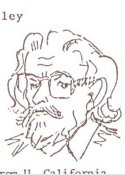A definition of science and some consequences
A definition of science and some consequences
James Paul Wesley
In: Physics as a science. Ed.: G. Galeczki (u.a.). Palm Harbor 1998, S. 7-15.
Die Forschungsgruppe G.O. Mueller referiert in der Ergänzung des Kapitels 4 ihrer Dokumentation diese Arbeit von James Paul Wesley:
Definiert Naturwissenschaft mit den Grundsätzen (S. 7): „1) empirical induction, 2) reproducibility, 3) generality in space and time, 4) simplicity or parsimony, and 5) mathematics.“ Diese Grundsätze werden zu oft verletzt oder ignoriert, wenn die Theorien als rein metaphysische Produkte des menschlichen Geistes ganz beliebig in die Wissenschaft eingeführt werden. Sieht einen solchen Fall z.B. in der Urknall-Theorie (Big Bang) (S. 10): „There is, of course, no real evidence for any such „big bang“ – quite the contrary. Recently it was predicted that the „big bang“ theory wold be verified when the Hubble space telescope looked back another billion [10 hoch 9] years into space to see how different things were in the universe way back then. But the telescope revealed a universe that looks precisely the same as the present day universe as seen locally. The „big bang“ theory has thus been empirically demonstrated to be wrong.“
Kritisiert die ungeprüfte Übernahme mathematischer Modelle und ihre Präsentation als physikalische Wirklichkeit (S. 12): „One may, of course, extrapolate mathematics slightly from reality, such as in non-Euclidean geometries; but these extrapolations are almost never of any value for science. For example, postulating a curved space in „general relativity“ has never resulted in any empirical confirmations.
Most of the physical theories cluttering the literature are based solely upon mathematical symmetries without any attempt to see if these theories agree with any actually known empirical evidence. It seems to be assumed that mathematics provides deeper physical truths than can be provided by mere experimental evidence. For example, Maxwell theory is usually formulated in terms of mathematical axioms and not in terms of empirical laws. The fact that the Maxwell theory fails to agree with the crucial experimental results [6] is conveniently ignored.
And „special relativity“ demands that the mathematical „Lorentz covariance“ be imposed upon all physical theory; yet there is no empirically established branch of physics that possesses „Lorentz covariance“. Certainly, the mythical „Lorentz space-time transformation“ has never been empirically demonstrated to be true in laboratory – quite the contrary. It has never been empirically demonstrated that after fast round trips each twin is found to be older than the other. And the Maxwell theory, that is „Lorentz covariant“, does not agree with experimental results in general [6].“ Die zweimal zitierte Arbeit [6]: J. P. Wesley: Advanced fundamental physics. 1991, Kap. 6, S. 212-273.
Demonstriert die möglichen Fehler durch rein mathematische Behandlung, die entstehen, wenn in physikalischen Bedeutungen der Gleichungen z. B. die realen Abhängigkeiten wie Ursache/Wirkung bestimmter Größen durch matemathische Operationen umgekehrt werden: eine Ursache kann jedoch physikalisch nie von der Wirkung abhängen (S. 14).
- 1. November 2012
- Artikel
